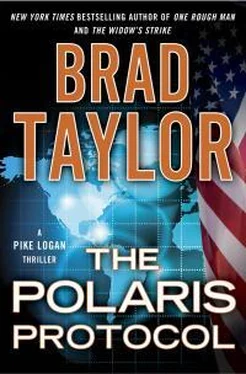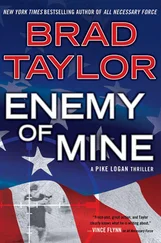And the Cloud was born.
The name was a play on cloud computing, whereby we’d remove the terrorist and his “data” from the real world and “store” them in a special place that nobody on the outside could see or touch, locked away from other prying eyes, accessible only by authorized members of the Taskforce. One of those locations was here.
The Garfield County sheriff’s office was a few miles out of town, on a road that ran along the Panguitch creek. On the same property was the county jail, used pretty much exclusively for household domestic violence calls, drunk drivers, or, more dangerously, marijuana growers, who were staking their claim more and more to the surrounding national forest lands, playing cat and mouse with the Forest Service response teams.
The sheriff’s name was Bob Marley, something I’m sure he hated now that the marijuana growers had started to move in. He had some history with special operations and had agreed to use his jail as a Cloud location, one of many sprinkled throughout the small towns of America. He was responsible for the man I wanted to see, but first I had to prove who I was.
I pulled my hamster-powered hybrid in front of a corner coffee shop that looked straight out of a Norman Rockwell painting, parking between a Jeep and a Ford F-250 pickup. I shut the door, getting some stares from two old guys sitting on a park bench out front. One said, “How well does that thing work when it snows?”
I passed by them and said, “Not so good, but the hamsters under the hood are trained to dig.”
I entered the café without waiting on a response and glanced around. There was another pair of old guys sitting at the counter drinking coffee, a man and woman in a booth to my right, and in the back, a solo man with a laptop in front of him, facing the door. He was dressed in a plaid shirt, jeans, and a cowboy hat. I was expecting someone in uniform, making identification easy, but there was nobody here like that.
I walked up to the guy in back and he stood. I said, “Sheriff Marley?”
“Yep.” He shook my hand and motioned to the opposite seat in the booth. After the waitress had come and gone, he said, “How can I help you?”
Feeling like I was in a Mission: Impossible movie, I slid across a thumb drive. He plugged it into the laptop, did some fiddling around on the keyboard, and waited, giving me a smile.
49
I couldn’t see his screen but knew the thumb drive was conducting a sync with the laptop, each interrogating the other to make sure the ciphers matched. After a second, he leaned in and said, “Alpha Echo Seven Seven Seven.”
I pulled out my phone and tethered it via Bluetooth to his computer, the access codes automatically locking on because of the thumb drive. The screen showed AE777 on one line and ZG502 on another. I said, “Zulu Golf Five Zero Two.”
He smiled again and closed the laptop. “You don’t look like an intel weenie.”
I said, “Neither do you.”
He laughed and said, “I’m just a small-town sheriff. You Army?”
“Yeah. Well, I was. Doing something different now. Like you.”
“Something different, but nothing like me, I suspect. I was One Seven-Five, back in the day when I was a barrel-chested freedom fighter.”
And I knew I was in like a tick on a hound dog, to use a phrase that seemed to fit in around here. One Seven-Five was First Battalion, Seventy-Fifth Infantry. A Ranger, like me.
I said, “No shit. I spent some time in Third Batt. Not as nice as Savannah, but I guess you didn’t see much of that city while you were there anyway.”
As expected, he immediately felt a bond, and I saw him relax. We of course spent the next few minutes playing the “You know Sergeant Humpty-Hump?” game, figuring out where we’d crossed paths. He didn’t ask outright for everywhere I’d served, but he was smart. He peppered the name list with men who’d moved on to a different, more select unit. A special-mission unit I was also once in. It didn’t take him long to confirm I wasn’t an intelligence analyst.
Eventually we ran out of war stories, and he said, “What’s an Operator doing here? I’ve had this guy for over a year, and the only people who’ve shown up might as well have been driving a hybrid car and wearing a lab coat.”
I skipped telling him about my rental. “I’m not here to get information out of him. I might be moving him to another location, depending on what he says.”
He nodded, not asking any more questions, knowing it wasn’t his place to do so. He’d only been read on to his specific activities with the Cloud and had no knowledge at all of the Taskforce, but he was smart enough to be able to guess.
I said, “How many other guys in the Cloud do you have here? Will they know he’s gone?”
“None. He’s my first, and from what I know, they never put two in the same place.”
Good thinking. It was weird getting a glimpse into part of the Taskforce that had been kept secret from me. Especially since I’d helped create the organization and was one of the Operators who fed the detainees into this system.
I said, “Can you give me some background on him before I go in? What’s he like? How’s he act?”
“He’s not bad at all. Actually, he’s pretty polite. Never gives us any trouble. His only request has been books. He reads constantly. Nothing like the drunks we usually deal with.”
That gave me a little alarm. The terrorist was a Palestinian assassin from a refugee camp in Lebanon. He went by the name the Ghost, and he was very cunning. He’d come close to killing some of my team in Dubai using an ingenious heat-detonated improvised explosive device he’d created in about ten minutes using parts from a hardware store. He was a killer who had never registered on our radar, which meant he’d been very, very good. We weren’t even sure if we had his actual name, since we’d found five attached to him. If he’d been here a year, he’d probably come up with some idea of how to escape.
“You realize his danger, though, right? This guy tried to kill the sheik of Dubai and the American envoy to the Middle East with an explosive device that cut the cables to an elevator. He is smart. I don’t care how polite he is, treat him like Hannibal Lecter.”
Bob held up his hands. “Yeah, yeah. Don’t get me wrong. I’m glad he’s not flinging shit through the bars or going on a hunger strike like I read about at Gitmo, but I treat him with the respect he deserves. Don’t worry, when I was read on to the Cloud I was given my left and right limits. I’m out of the Army, but I still have some discipline.” He took a sip of coffee and said, “Although when you see him, you might second-guess whether we have the right man. He’s a scrawny little guy with Coke-bottle glasses that make him look like the kid who got bullied at school. Doesn’t look like a master terrorist. But then again, neither did the ones I took out in Iraq. Don’t worry, I get it.”
I didn’t want to let on that I was the one who’d captured him, because as far as the sheriff knew, he might have been taken off a flight by the TSA. It didn’t sound like the Ghost had changed much, though. Although I guess he wasn’t getting any time to hit the gym.
“Has he talked about Islam or thrown any propaganda at you when you dealt with him? Killing infidels or anything like that?”
Whether I continued would hinge on his answer. The Ghost was a killer, but he wasn’t what I would call a radical jihadi. At the end of the day, he was a Palestinian nationalist who happened to be Muslim. He had no interest in a global caliphate or taking the war to the capitalist kafirs. His interest was the injustice he perceived had been committed against the Palestinian people. At least that was my take, and after reading the file of his extensive interviews, I knew it was also the take of the intelligence analysts. He, naturally, hated Israel and all it stood for, along with the United States for supporting that country, but he’d been screwed by Hezbollah as well, and I hoped to use that.
Читать дальше












